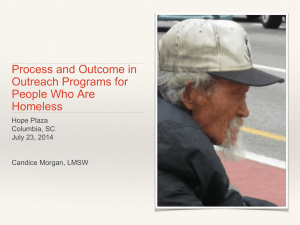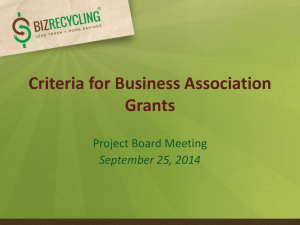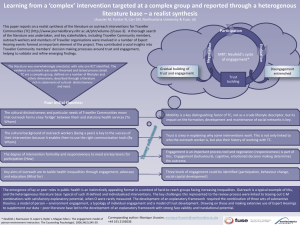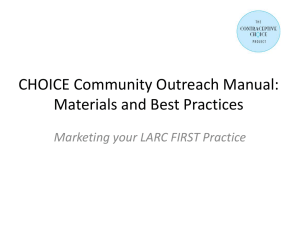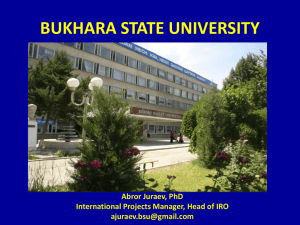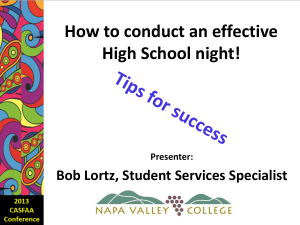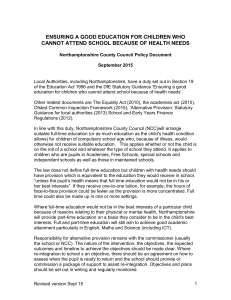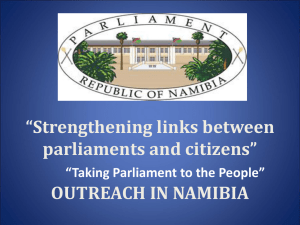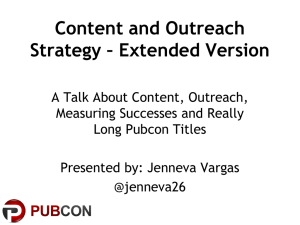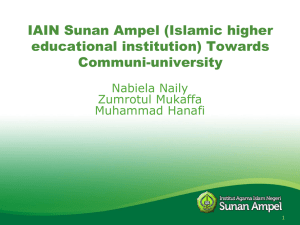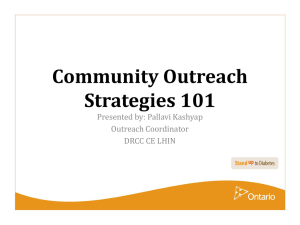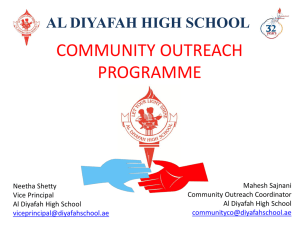report - Building Stronger Universities
advertisement
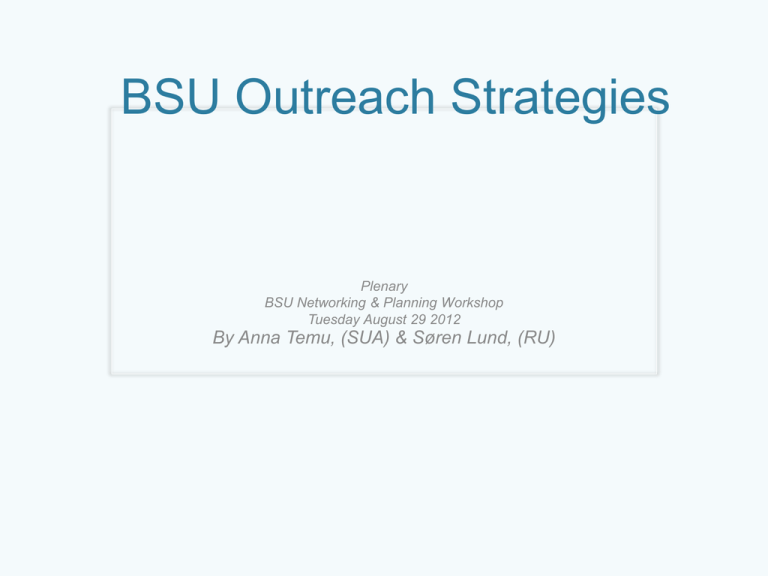
BSU Outreach Strategies Plenary BSU Networking & Planning Workshop Tuesday August 29 2012 By Anna Temu, (SUA) & Søren Lund, (RU) Participants Ambrose Okot – Chair Julius Massaga Wineaster Andreson Flemming Konradsen Arne Anderson Soren Lund Anna Temu - Rapporteur Peers - multidiscipline University Ivory Tower Peers: south - south Traders, Farmers Junior colleges & Schools, Policy makers, Governments, International Organizations, Donors, Development agencies, NGOs, The Industry Agreements Universities are institutions for research and researchbased education We become meaning full to the society/communities, donors, tax payers development agents if we reach out to stakeholders with intention of improving livelihoods There is a need to cooperate to develop an improve the quality of our institutions in this domain is the object of this thematic workshop How do we define “OUTREACH”? The concept of outreach can be defined as: “systematic efforts to provide unsolicited and predefined help to groups or individuals deemed to need it”, or “to provide services beyond conventional limits as for example to particular segments of a community” For universities: “investing university staff and resources for free in support of the surrounding communities and industries in meeting their challenges and improving their livelihoods and performance” Definition in practice As outreach activities we suggest for this workshop to include some or all of the following activities: Participating in the public debate on current issues Servicing public institutions (local authorities, local schools, local administrative bodies) or private sector by providing information, ad-hoc research and analyses of issues of concern (free of charge – vs. consultancy) Offering Open university / people’s university (popular themes) Organising ad-hoc trainings and capacity-building for staff of local authorities, businesses, trade unions, associations, NGOs etc. Engaging in “action-research” with selected stakeholder groups Outreach Strategies for BSU Presented by Anna Temu August 2012 BSU Workshop 7 What BSU can offer Capacity to formalize internships, action research, action learning/case based training Agree that the south need this and collaborative activities action learning, we need to link with e-learning. Action research require more time to interact – case development ICT facilities (cameras, Tele/video conferencing) How to communicate research to various stakeholders; “collaborate to learn” south to south/north to south; Develop communication/dissemination skills (university wide) – interdisciplinary, intercultural: action-reach methods (individuals, value chain, communities, societies) University outreach/scientific forums Jointly organize conference/forums at platform/institutional/regional levels) e.g. post-graduates to produce outreach materials from their theses for beneficiaries What BSU can offer Lessons from cases to come up with grounded theory of what works and what doesn’t work Small research grants to “look into” what works and doesn’t work, and why Website collect written cases with pictures/sounds Support writing text books for secondary schools and first years and hand books for SMEs targeted to specific value chain Teams build to produce such materials – initiated by south – build teams to assess (researchers, collaborators (south and north), editors) Venture with radio/TV stations – present particular issues/ link with school of journalism How to produce mass media material and presentation, linking Supporting existing medias to produce and air outreach materials What BSU can offer Venture with radio/TV stations – present particular issues/ link with school of journalism How to produce mass media materials and presentation, (most schools have journalists) Supporting existing medias to produce and air outreach materials Development incentive structure Provide awards for best outreach programs in platform/institutions/regional Quality assurance built in for every outreach activity itemized above Train on QA issues in outreach programs Develop joint framework from lessons learnt Areas of Concerns 1. Matching the time – north and south 2. Coverage – how we can involve others in this process? 3. Interest of the north to implement outreach activities in the south it there interest? If no, how can we make it attractive? 4. What is beyond the overheads in the south and north -need to be considered 5. The need for improving small infrastructure for e-learning and ICT facilities (minimal budget) –can it be accommodated What they think of us
